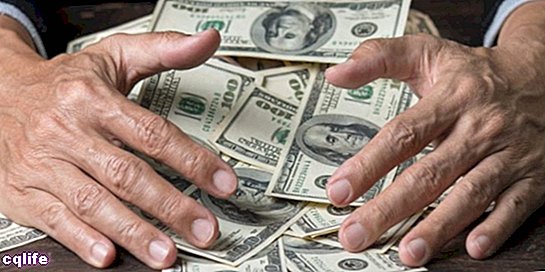We explain what greed is, various examples and its differences with greed. Also, what are the other deadly sins.

What is greed?
Greed is the uncontrollable and disorderly desire to accumulate goods, wealth or objects of value, beyond the minimum needs of survival, with the sole intention of treasuring them for oneself. It is considered, therefore, a form of selfishness, more or less equivalent to greed.
It is possible to understand greed from a secular and psychological perspective, or also from a religious and cultural perspective, but in both cases the term has a negative connotation linked to the insatiable desire to have something that was already present in its origin, since it comes from from Latin avere, "Wish" or "crave."
In fact, for the psychology, greed is the inability to control or limit the formulation of desires, despite the fact that the basic needs that motivate them are already satisfied. This type of behavior leads to hoarding and hoarding, present in psychological disorders such as disposophobia (compulsive hoarding syndrome) or obsessive-compulsive disorder (Diogenes syndrome).
Instead, from a perspective moral, greed is understood as a selfishness excessive and a fault capable of engendering other evils, such as disloyalty, betrayal for personal gain, corruption and even legally convicted actions such as theft, fraud and assault.
Catholicism, for example, understands it as a vice capital contrary to virtue of generosity, and very close to sin mortal of greed. Buddhists, for their part, understand it as a wrong link between the material and the happiness.
In Western tradition, greed has often been depicted with the image of a hungry wolf or a woman turning away from the cornucopia. In the biblical imaginary it is represented under the name of mammón, an Aramaic word that meant "wealth", and was associated with King Midas of Greek mythology, whose touch made everything gold.
In the modern imaginary, on the other hand, greed was associated with the idea of the moneylender (often of Jewish descent, so it was usual among anti-Semitic accusations), of the usurer, and later of the tycoon or billionaire, whose only love resides in money, like the character Ebenezer Scrooge from Christmas story by Charles Dickens (1812-1870).
Examples of greed

Greed can manifest itself in many very different ways, which have in common the irrepressible desire to accumulate goods or possessions, or the excessive love for them, such as:
- Refusing to help others in distress having the means to do so and without involving great personal sacrifice.
- Hoarding goods or products that are in high demand, well above the satisfaction of personal needs, and regardless of whether others are left without access to them.
- Hoarding money and refusing to spend it on the enjoyment of life, on obtaining things or experiences, contenting yourself only with seeing your fortune grow.
- Allowing others to suffer irreparable misfortunes in order not to lose a small portion of what you have, even though the personal sacrifice would be insignificant compared to the damage that others will suffer.
Greed and greed
Greed and greed are very similar concepts, since they both have to do with excessive desire and ambition. However, they are not interchangeable notions: while greed has to do with the desire to accumulate and preserve what is accumulated, greed on the other hand is understood as a form of unstoppable ambition.
That is, greed is an exaggerated and impossible to satisfy desire for wealth, which has nothing to do with the livelihood or the basic needs of an individual. In other words, greed is the love of wealth for its own sake.
Unlike greed, held in the Catholic creed by a vice - albeit a serious one - greed constitutes a capital sin or mortal sin, that is, one of the gravest sins contemplated by Christian morality. However, that distinction between greed and greed is often overlooked.
Other deadly sins
Apart from greed or greed, the seven deadly sins of Catholic doctrine are:
- The pride, understood as believing oneself more than others, that is, an inordinate love for oneself. This is considered the most serious of the capital sins, being the original or the one that engenders all the others.
- The go to, described as an uncontrollable feeling of rage or anger, often leading to hatred and intolerance.
- The envy, understood as the irrepressible and unhealthy desire for what others have and what one lacks, be it something physical, mental, emotional or of any other nature. The envious, lacking what another has, rejoice in the event that he loses it, celebrating the misfortune of others as their own triumph, and sometimes even provoking it with their own hand.
- The lust, understood as an unstoppable carnal desire and impossible to satisfy, that is, an unstoppable sexual or erotic desire that does not respect limits, nor does it obey conscience. As described by Dante Alighieri (1265-1321) in his Divine Comedy (written between 1304 and 1321), the lustful love other people so much that they put God second.
- The gluttony, identified with the excessive consumption of food and beverages, without being related to the satisfaction of hunger and thirst. This is the sin of drinkers, gluttons and also drug addicts.
- The laziness, understood as the inability to take charge of one's own existence, that is, as the neglect of obligations and responsibilities regardless of the consequences, the inconsideration and also laziness.
